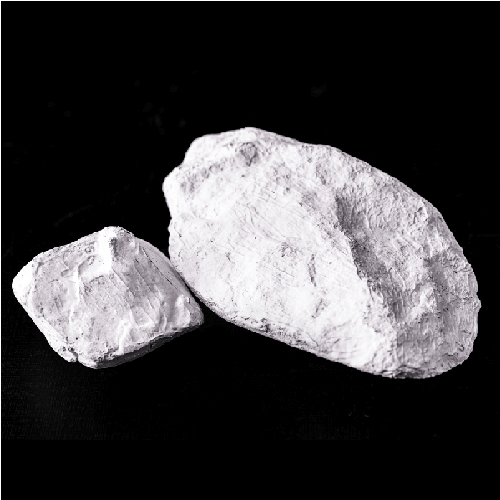
Calabash chalk
Alternate names: Argile, Calabar Stone, Calabash Clay, Ebumba, Lacraie, La Craie, Mabele, Ndom, Nzu, Poto, Shikor Mati, Sikor, Ulo
Actions: General, Gastrointestinal, Hematological, Musculoskeletal, Neurological
Background
Calabash chalk is a type of clay. Some people, especially pregnant women, eat calabash chalk as medicine. But calabash chalk contains heavy metals like arsenic and lead, which can be dangerous.
Despite serious safety concerns, calabash chalk is used for morning sickness, nausea and vomiting, diarrhea, and skin care, but there is no good scientific evidence to support these uses.
Despite serious safety concerns, calabash chalk is used for morning sickness, nausea and vomiting, diarrhea, and skin care, but there is no good scientific evidence to support these uses.
Safety Safety definitions
When taken by mouth: Calabash chalk is LIKELY UNSAFE when taken by mouth. It contains lead and other heavy metals that can cause severe adverse effects when consumed in large amounts or for a long time.
When applied to the skin: There isn't enough reliable information to know if calabash chalk is safe or what the side effects might be.
When applied to the skin: There isn't enough reliable information to know if calabash chalk is safe or what the side effects might be.
Special Precautions & Warnings:
Pregnancy and breast-feeding: Calabash chalk is LIKELY UNSAFE when taken by mouth. It contains lead and other heavy metals that can cause severe adverse effects to the infant when consumed in large amounts.Effectiveness
NatMed Pro rates effectiveness based on scientific evidence according to the following scale: Effective, Likely Effective, Possibly Effective, Possibly Ineffective, Likely Ineffective, Ineffective, and Insufficient Evidence to Rate.
Insufficient evidence Effectiveness definitions
- Morning sickness.
- Nausea and vomiting.
- Diarrhea.
- To reduce appetite.
- Birth control.
- Skin care.
- Wound healing.
- Other conditions.
Dosing & administration
The appropriate dose of calabash chalk depends on several factors such as the user's age, health, and several other conditions. At this time there is not enough scientific information to determine an appropriate range of doses for calabash chalk. Keep in mind that natural products are not always necessarily safe and dosages can be important. Be sure to follow relevant directions on product labels and consult your pharmacist or physician or other healthcare professional before using.
Interactions with pharmaceuticals
It is not known if Calabash Chalk interacts with any medicines. Before taking Calabash Chalk, talk with your healthcare professional if you take any medications.
Interactions with herbs & supplements
There are no known interactions with herbs and supplements.
Interactions with foods
There are no known interactions with foods.
Action
There isn't enough reliable information to know how calabash chalk might work. But calabash chalk contains lead and other heavy metals. These heavy metals can cause serious adverse effects in children and adults.
vital.ly has licensed monographs from TRC Healthcare.
This monograph was last reviewed on 25/05/2022 18:36:17 and last updated on 30/10/2020 20:54:27. Monographs are reviewed and/or updated multiple times per month and at least once per year.
Natural Medicines disclaims any responsibility related to medical consequences of using any medical product. Effort is made to ensure that the information contained in this monograph is accurate at the time it was published. Consumers and medical professionals who consult this monograph are cautioned that any medical or product related decision is the sole responsibility of the consumer and/or the health care professional. A legal License Agreement sets limitations on downloading, storing, or printing content from this Database. No reproduction of this monograph or any content from this Database is permitted without written permission from the publisher. It is unlawful to download, store, or distribute content from this site.




